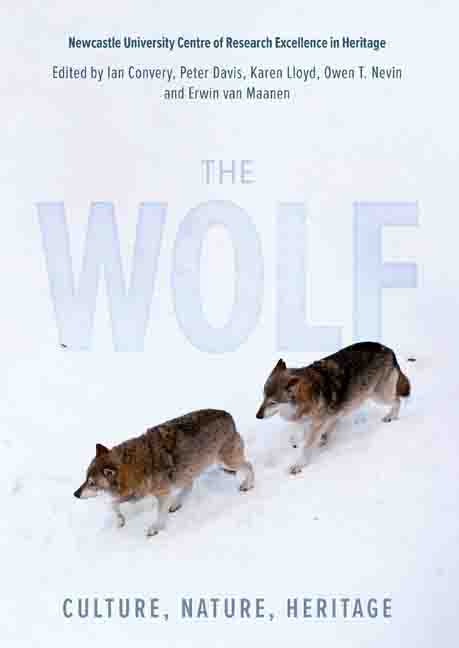Book contents
- Frontmatter
- Dedication
- Contents
- List of Illustrations
- Preface and Acknowledgments
- List of Abbreviations
- Poem: Trophic Cascade by Camille T Dungy
- Foreword
- Part I Imagining the Wolf
- Part II What Makes the Wolf
- Part III Return of the Wolf
- Part IV Personal Encounters
- Afterword: The Ecological Disadvantage of Living on an Island
- Glossary
- List of Contributors
- Index
29 - To Receive the Wolf
Published online by Cambridge University Press: 10 January 2024
- Frontmatter
- Dedication
- Contents
- List of Illustrations
- Preface and Acknowledgments
- List of Abbreviations
- Poem: Trophic Cascade by Camille T Dungy
- Foreword
- Part I Imagining the Wolf
- Part II What Makes the Wolf
- Part III Return of the Wolf
- Part IV Personal Encounters
- Afterword: The Ecological Disadvantage of Living on an Island
- Glossary
- List of Contributors
- Index
Summary
A lone wolf passes through the night streets of a suburban town in Holland, trotting along the white line in the centre of the road and crossing diagonally towards the bright lights of a corner shop. At that moment a cyclist appears, and the wolf moves in front of the cyclist. The cyclist must have seen the wolf because how could he not see it as it heads directly towards him? The cyclist brakes and the bike stops, and let's assume that even the cyclist's breath stops as the wolf lopes towards him in its long, easy gait. The wolf passes just a few metres away from the front wheel of the bike, and maybe the wolf 's nose twitches as it detects the scent of the cyclist, who may or may not be sweaty (although, let's face it, there are not many hills for cyclists to struggle with in the Netherlands). The cyclist is almost certainly frozen in the strangeness of the moment, yet no doubt he is of but passing interest to the wolf. And maybe the wolf accommodates the presence of the cyclist as the worlds of the wild and the suburban collide, and the wolf takes a sideways glance and, for a moment only, let's just suppose that the eyes of the cyclist and the wolf meet.
I’m watching the film clip of this moment and wonder in what ways the wolf measures the human world – the bright street lights, the corner shop, the houses and gardens, shrubs and trees and the numerous unfamiliar scents that assail the wolf 's senses of cyclists, rubbish bins, cats and drains.
When the street lights run out, the wolf disappears because what the wolf really needs is somewhere dark and quiet where it can settle down, unassailed.
Like a travelling medicine show, the lone wolf appears in the small town of Bennekom for one night only; Canis lupus lupus is travelling back into the heart of one of the most densely populated countries in Europe. Seventeen million people live in the Netherlands, where wolves were last counted among its fauna 150 years ago.
- Type
- Chapter
- Information
- The WolfCulture, Nature, Heritage, pp. 335 - 346Publisher: Boydell & BrewerPrint publication year: 2023



